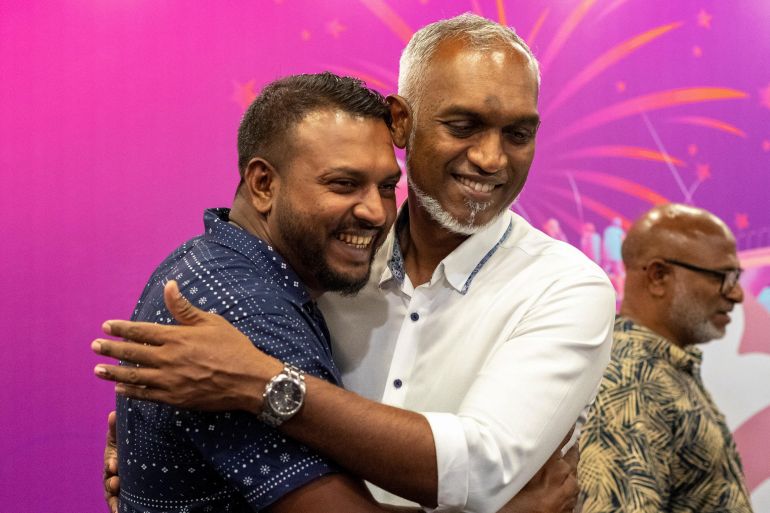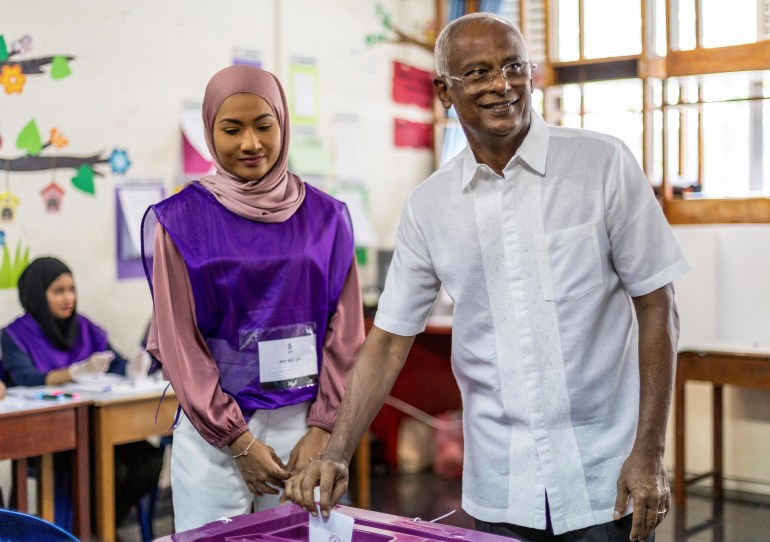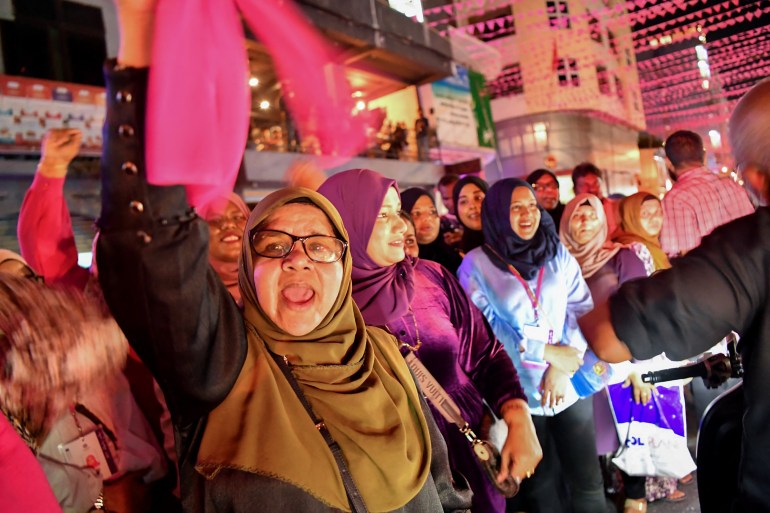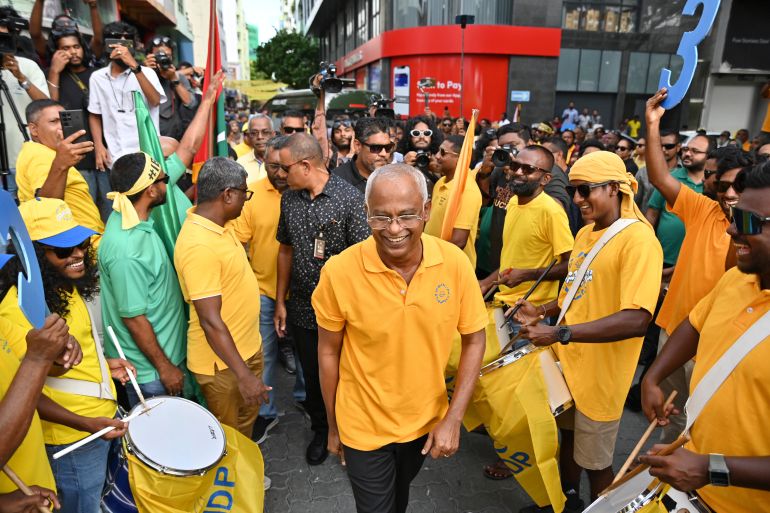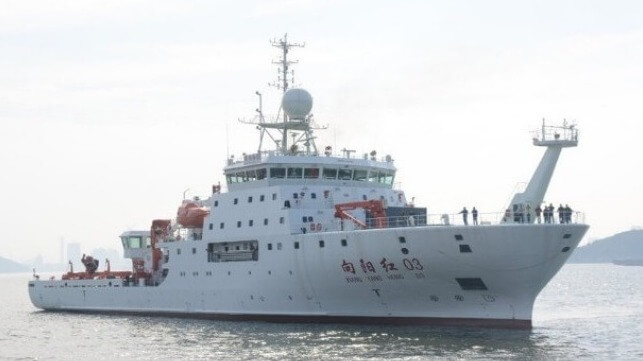Scientists Discover a New Ecosystem – “The Trapping Zone” – That Is Creating an Oasis of Life
By
The new ecosystem is located in the depths of the Indian Ocean.
Researchers from the University of Oxford and the Nekton Maldives Mission have discovered evidence of an ecosystem known as “The Trapping Zone” that is creating an oasis of life 500 meters (1640 feet) under the surface of the Indian Ocean. The Maldives Government has hailed the finding as highly significant.
Video evidence from Nekton science cameras onboard the Omega Seamaster II submersible, together with biological samples gathered and extensive sonar mapping, show that predators such as sharks and other large fish feed on swarms of small organisms known as micro-nekton in this zone. These marine organisms can swim against the current and often migrate from the deep sea to the surface at night before returning to the depths in the morning (known as The Vertical Migration). However in this region, at 500 meters (1640 feet), the micro-nekton get trapped against the subsea landscape.
The Maldivian atolls’ volcanic subsea strata and fossilized carbonate reefs combine steep vertical cliffs and shelving terraces. The trapped animals are then targeted by large pelagic predators, including schools of tuna and sharks, along with well-known, large deep-water fish including the spiky oreo (named after the biscuit) and alfonsino. Tiger sharks, gill sharks, sand tiger sharks, dogfish, gulper sharks, scalloped hammerhead sharks, silky sharks, and the very rare bramble shark were all documented by the mission.
Marine ecosystems are defined by both topography and ocean life. “This has all the hallmarks of a distinct new ecosystem,” explained Professor Alex Rogers (University of Oxford) who has spent over 30 hours underwater in the mission’s submersibles observing ‘The Trapping Zone’ during the expedition. “The Trapping Zone is creating an oasis of life in the Maldives and it is highly likely to exist in other oceanic islands and also on the slopes of continents.
Bramble Shark. Credit: Nekton Maldives Mission (c) Nekton 2022
Lucy Woodall, Associate Professor of Marine Biology at the University of Oxford and Principal Scientist at Nekton, said: “We’re particularly intrigued at this depth — why is this occurring? Is this something that’s specific at 500 meters, does this life go even deeper, what is this transition, what is there, and why? That’s our critical question we need to ask next. Why are we seeing the patterns that we have observed on this expedition? This will enable us to understand the deep ocean in much better terms.”
A video summary of the Nekton Maldives Mission’s discovery of the Trapping Zone. Credit: Nekton Maldives Mission (c) Nekton 2022
Whilst a trapping effect has been associated with biodiversity hotspots on subsea mountains or seamounts, it has not previously been linked to the different geomorphology and biological parameters of oceanic islands, like the Maldives
Analysis of the video and biological data is ongoing in the Maldives, Nekton’s UK headquarters in Oxford, and at partner laboratories. The discovery could have important implications for other oceanic islands and the slopes of continents, sustainable fisheries management, the burial and storage of carbon and, ultimately, climate change mitigation.
President of the Maldives H.E Ibrahim Mohamed Solih, said: ‘The discovery of ‘The Trapping Zone’ and the oasis of life in the depths surrounding the Maldives provides us with critical new knowledge that further supports our conservation commitments and sustainable ocean management, and almost certainly support fisheries and tourism.’
The Nekton Maldives Mission is coordinated and managed by Nekton, a not-for-profit research institute based at Begbroke Science Park in Oxford. The mission is a partnership between the Government of Maldives, Nekton, and the University of Oxford alongside a dozen organizations in the Maldives and an international alliance of technology, philanthropy, media, and scientific partners. The purpose is to conduct the first systematic survey of ocean life in the Maldives, from the surface to 1000 meters deep, to help inform conservation and sustainable development policies. Until the mission, almost nothing was known about what lay below 30 meters (100 feet) deep in this region.
Oliver Steeds, Chief Executive and Mission Director of Nekton said: ‘The Maldives Mission has been co-created and co-produced with our Maldivian colleagues to meet national priorities with all data and biological samples owned and vested with the Maldives. Nekton’s scientific leadership is anchored by our research team from the University of Oxford and it’s this scientific collaboration between the Maldives and Oxford that is at the heart of the mission’s success and long-term impact.’
The mission set sail on September 4 and was at sea for 34 days. Other discoveries from the mission so far include:
- Ancient beach lines: Terracing and wave erosion at depths of 122m, 101m, 94m, 84m, and 55m revealed evidence of different beach lines from sea level rise over the last 20,000 years since the end of the last glacial maximum.
- Coral Reefs: The mission systematically mapped, surveyed, and determined the location, health, and resilience of coral reefs in six major locations to inform the Maldives Government’s conservation and management policies. The reefs are essential to life in the Maldives and help reduce the impacts of sea level rise and the increasing frequency and intensity of storms caused by climate change.
- A deep-sea refuge: At depths from 120 meters to 300 meters, the team systematically surveyed the Rariphotic Zone for the first time in the Maldives — home to corals, reefs, and organisms, some of which are highly likely to be species new to science.




